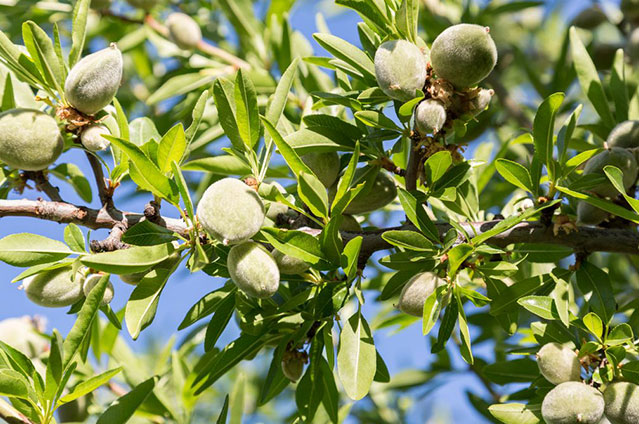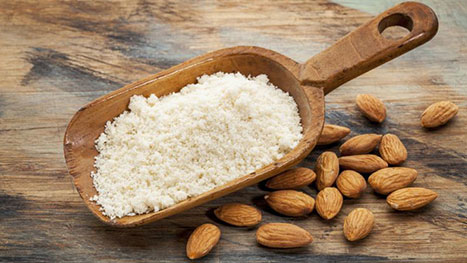
In Tunisia, almond cultivation covers an area of approximately 80,000 hectares, with nearly 5 million trees cultivated in the country. The Sfax region is the main center for this crop, representing more than half of the plantations.
In this region, almond trees are often grown as the main species or in association with olive trees, and they also serve to convert non-productive olive trees. Additionally, the North-East region, particularly Bizerte, hosts small orchards by the sea.
Thanks to its favorable climatic conditions and well-established agricultural practices, Tunisia has a strong production potential for almonds, with yields reaching up to 1,000 kg per hectare in the orchards of Sfax.

Nutritional Value
Almonds are nutritious, containing about 20% protein, which is comparable to meat. They are rich in essential minerals such as calcium, magnesium, and iron, and also provide vitamin E, a powerful antioxidant, as well as other B vitamins.



